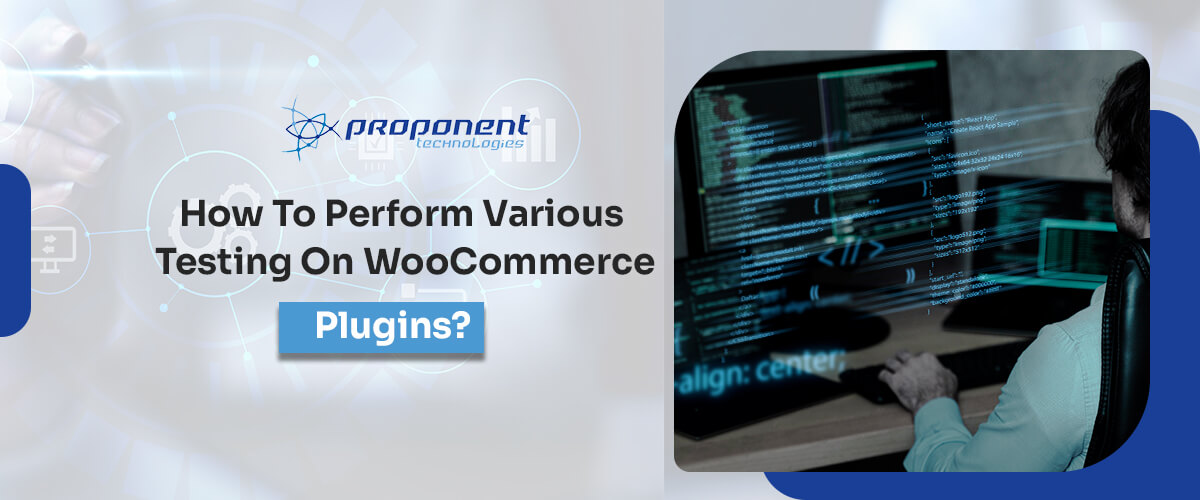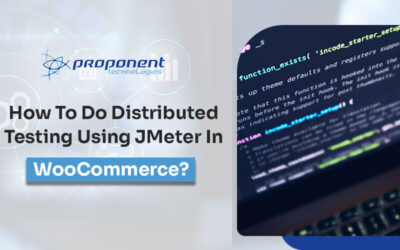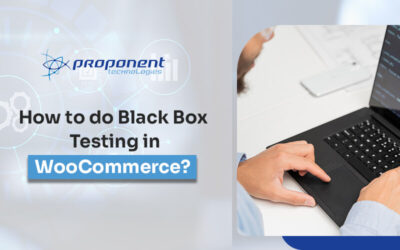Testing your WooCommerce store thoroughly ensures it operates seamlessly and delivers a superior user experience. Here’s a structured approach to testing extensions and maintaining code quality on your WooCommerce platform.
Setting Up Your WooCommerce Environment
Ensure WooCommerce is correctly installed on your website and verify the activation of all necessary plugins and dependencies. Performing various tests on WooCommerce ensures that settings are configured accurately and functionalities are optimized.
Types of Testing for WooCommerce Plugins
1. Functional Testing
Functional testing in a WooCommerce site involves verifying that all features and functionalities work as intended. This includes testing various aspects such as:
- User Accounts: Testing user registration, login, and account management functionalities.
- Product Management: Ensuring products can be added, edited, and removed correctly.Testing Product Categories, Tags, and Coupon Code Functionality.
- Checkout Process: Testing the entire process from adding items to the cart to completing the purchase. After placing a complete order you have to check the order status on the admin end.
- Payment Gateways: Verifying that payment methods are functioning smoothly and securely for accurate transaction processing along with other tax calculation.
- Shipping Methods: Checking that shipping options and calculations are accurate.In order detail you have to check billing & shipping addresses, order amount (like coupon amount tax amount, shipping amount etc.), customer detail, order status etc.
- Plugins and Extensions: Ensuring compatibility and proper functionality with other installed plugins and WooCommerce extensions.
- Responsive Design: Verifying that the site works well across different devices and screen sizes.
2. Performance Testing
Performance testing ensures that a WooCommerce store functions effectively across different levels of traffic and usage. Key elements of this testing include assessing how well the store performs under varying loads.
- Evaluate page load times, response times, and server resource usage under varying traffic conditions.
- Simulating concurrent users and monitoring server resources.
- Conduct stress tests to assess how well the store handles high-user traffic
- Scalability tests to handle increasing number of products or customers.
3. Security Testing
Security stands as the primary concern for every e-commerce store. Through conducting security testing on WooCommerce, we can identify vulnerabilities and safeguard sensitive customer data.
- Secure transmission of data (SSL/TLS encryption)
- Perform security assessments to identify and address vulnerabilities like SQL injection, and cross-site scripting (XSS) attacks.
- Ensure secure storage and transmission of customer data, including card details, addresses, passwords and other payment information.
4. User Interface Testing
User interface testing evaluates the usability of a WooCommerce store by assessing the overall user experience and identifying areas for enhancement and potential challenges.
In simplest form, it focuses on testing the ease of interaction with a website, application, or software.
- Assess the user-friendliness of the WooCommerce store, focusing on clear, attractive and intuitive navigation
- Responsive design across all the devices
- Ensuring proper error and success messaging, as well as other validations.
- Test functionalities like user friendly item searching and filtering capabilities.
- Guest checkout options.
5. Plugin Compatibility
If your website has additional plugins installed, it’s essential to test their compatibility with WooCommerce.
- Check compatibility of third-party plugins with WooCommerce, especially those related to payment gateways, shipping methods, and core functionalities.
- Ensure seamless integration and proper functionality across all essential plugins.
6. Web Compatibility & Responsive Testing
-
- Validate consistent performance and appearance across different web browsers (e.g., Chrome, Firefox, Safari) and operating systems (Windows, macOS, Linux).
- Test responsiveness on various devices (desktops, tablets, smartphones) to ensure optimal user experience on all platforms.
- To “Check responsiveness” on the WooCommerce store, Go to Appearance => Customize => Responsiveness Check
Conclusion
Thorough testing of WooCommerce plugins confirms its reliability, flexibility, and suitability for diverse e-commerce needs. With robust functionalities, seamless integrations, and strong community support, WooCommerce remains a powerful tool for creating and managing online stores.
By implementing comprehensive testing strategies, you can enhance your WooCommerce store’s performance, security, and usability, ensuring it meets the highest standards of quality and reliability in the competitive online marketplace.
To get a free quote, you can email us at: info@proponenttechnologies.com
Or you can call us at: +91 7017 374 621, +91 6397 593 103




